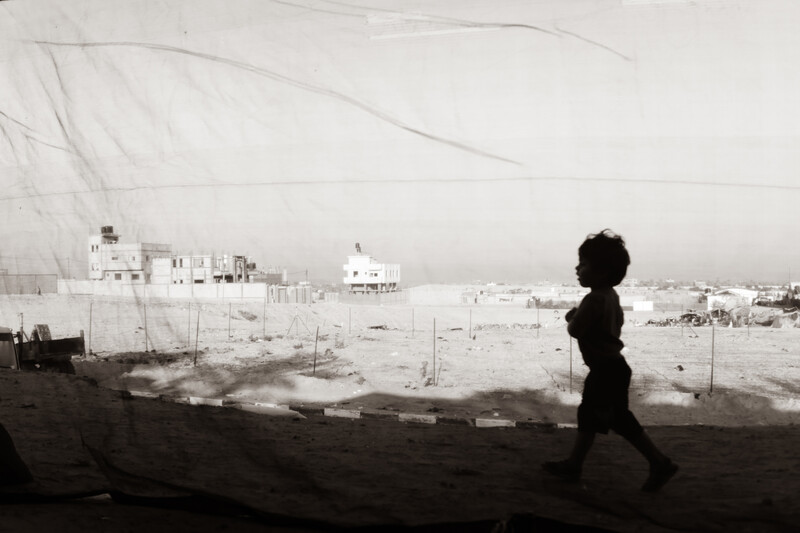3 January 2024

UN Secretary-General Antonio Guterres has called Gaza a “graveyard for children.”
It is with a knot in my throat that I’m writing this.
There is no safe place in the entire Gaza Strip. That’s the harsh truth.
My older sister, a real-life hero, shared with us how she and her two little children miraculously dodged death.
Rewind to Friday 13 October, just before the dhuhr prayer call at noon.
In strolls my sister with her two tiny tots, both barely two.
Faces? Pale as the moon. Her breath? Nearly stolen by the horror of that preceding night.
When word spread at that moment of a total blackout in our small strip of land – no internet, no phones – we huddled together, determined to shield ourselves from the doom and gloom. Finding a silver lining to this awful disconnection from the world, we tried to make the most of it, turning our time into some cozy, family-filled moments and crafting conversations out of thin air.
We set aside our smartphones; they were useless anyway. We revisited every moment of our past and present, telling each story on the backdrop of a haunting soundtrack, the airstrikes pummeling Gaza from north to south and east to west.
Caught in the symphony of those airstrikes, my dad throws a question at one of my sister’s toddlers, Omar, not yet two: “Come on, Omar, tell us what happened at your house?”
Despite his age, Omar understood.
As if the question crowded his little head, he started to narrate precisely what had gone down in his world. “House is broken, window is broken, door is broken,” Omar said with his limited language, and then he kept going.
“The ground is broken, my grandpa’s wall is broken, my toys are broken, Mama’s cupboard is broken, all is dust, and my eyes are filled with dust.”
He said he had rolled onto Majd, his little brother, with eyes full of dust. Then he wrapped it up without missing a beat: “Whole house is broken, the warplane broke the house, the street is broken, the country is broken.”
He finished the last sentence, and a mixture of amazement and a lump of emotion led us to wonder how a little child like him could say all those details, without realizing they were just words tumbling out.
My dad, stunned, whispered to him, the words just inaudible against the steady backdrop of bombardment around us. He hugged Omar close.
My little nephew flashed a shy smile, swiftly ended by a missile landing nearby. His smile turned into a frown, and he rushed to hide beside me.
I looked into Omar’s eyes, filled with bewilderment, as if he were asking me to take him out of here, to a place free from all these noises.
There were two harsh truths in this: Omar’s house was partly destroyed, but as he grows, he’ll realize the scars on its walls, inside and out, his toys, and the backyard where he played with cousins, all tell a tale of resilience.
Now, grappling with the harsh reality every day brings, we find ourselves helpless.
There’s no way around it: The people of this town and the town itself are unraveling at the seams.
Fatema Abedrahman is a writer in Gaza.


